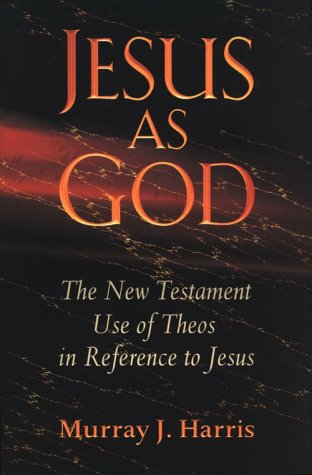Podcast: Play in new window | Download
Subscribe: Spotify | Email | RSS

In this episode of the trinities podcast I answer some of your questions. These include:
- How did the term “God” change from referring to the Father (and occasionally to the Son) to referring to the tripersonal deity postulated by trinitarian theologies?
- If salvation is the deification of believers, then why aren’t believers too homoousios with the Father, like Jesus (according to post-325 catholic theology).
- What would be the point or points of God allowing the sorts of evils we see in our world?
- Did God give Jesus the divine quality life? (John 5)
And what should we say about this argument?
- God is Father, Son, Spirit
- Jesus is [fully] God
- Therefore, Jesus is [fully] Father, Son, Spirit.
I suggest that this argument is most interesting when interpreted in this way:
- God = the Trinity
- Jesus = God
- Therefore, Jesus = the Trinity.
I say this last argument is unsound… but what do you say? If it’s not sound, how exactly does this argument go wrong? (Hint: it is undeniably valid. But is it sound – are both premises true?)
 You can also listen to this episode on Stitcher or iTunes (please subscribe, rate, and review us in either or both – directions here). It is also available on Youtube (scroll down – you can subscribe here). If you would like to upload audio feedback for possible inclusion in a future episode of this podcast, put the audio file here.
You can also listen to this episode on Stitcher or iTunes (please subscribe, rate, and review us in either or both – directions here). It is also available on Youtube (scroll down – you can subscribe here). If you would like to upload audio feedback for possible inclusion in a future episode of this podcast, put the audio file here.
Links for this episode:
- Murray Harris, Jesus as God: The New Testament Use of Theos in Reference to Jesus
- Hebrews 1:8
- Jesus’s argument in John 10
- Augustine (354—430 C.E.)
- Origen: the Son is not the Father
- podcast 15 – Are Paul’s “one God” and “one Lord” one and the same?
- podcast 49 – 2 interpretations of Philippians 2 – part 2
- The Lost Early History of Unitarian Christian Theology
- posts on “the Trinity” as a plural referring term vs. “the Trinity” as a singular referring term
- podcast 30 – The Council of Nicea
- The Orthodox Formulas 2: The Council of Constantinople (381)
- “Divine Simplicity” by Dr. Bill Vallicella in the Stanford Encyclopedia of Philosophy.
- podcast 59 – Dr. Carl Mosser on salvation as deification
- podcast 60 – Dr. Carl Mosser on deification in the Bible
- About the 451 council at Chalcedon: Philip Jenkins, Jesus Wars (kindle)
- 2 Peter 1:4
- podcast 88 – Dr. Trent Dougherty on the Problem of Evil
- John 5:16-30
- On the non-identity/numerical difference of Jesus and God/the Father according to the New Testament: God and his Son: the logic of the New Testament, Who Should Christians Worship?
- Dr. Gregory E. Ganssle on “God and Time” at the Internet Encyclopedia of Philosophy
- Our excerpt of John 5 was read by Michael Lee for the John 5 episode of his Bible Podcast. That portion of this podcast is released with at creative commons non-commercial sampling license license.
- This week’s thinking music is “Blackout & Blue” by Little Glass Men.


Couple of questions –
1) in answering my question about the semantic steps, Dale mentioned that second and third century theologians were sometimes cross-examined about the way in which they called Jesus theos – did that not mean that they worshipped more than one God? The response centred around the uniqueness of the Father, the ultimate, One, True (…) God. Can someone provide some examples of such cross-examinations, if they have them ready to hand? It would be helpful for me to see this distinction played out when it really mattered.
2) Dale seemed to dismiss the second question a bit too easily from my viewpoint (low!) – it does not mean that simply because men may become “gods” they have the same ousia, or come to possess it or to be of it, for other beings can be called “god”. It’s more about receiving some of God’s attributes (from God) than really being God in a true substantial sense. That was basically the quick answer, and it seems a little too easy to me, I must confess. It seems to distance the word, theos, a long way from the “substance” of the One True God, or at the very least to require us to say something very similar to what we are hearing (and I think most of us agreeing) about kurios, that is, Lord: flexible and context-dependant terminology.
But if we argue too hard for that flexibility of usage, do we not run the risk of conceding that the theology of the creedal period has less of a compatibility issue with, say, Paul? I am not arguing for this, but it could be argued that Athanasius and Co. were very content and aware of Paul’s usage of theos to primarily refer to the Father, because the word theos is so flexible, it can refer singularly to one member of the Trinity as it can to the three. “It depends on the context”. Is this not a similar argument as to the one provided for why human beings cannot expect to be homoousios with the Father? This may then provide a partial response to the question posted above:
I suggest that this argument is most interesting when interpreted in this way:
God = the Trinity
Jesus = God
Therefore, Jesus = the Trinity.
This argument is missing a line: “God” is an inflexible word that is always used in the same sense. Make that Line 1, and then maybe we can get down to business…
I have a quick question about the last question (by rick) on the episode about how God cannot be defined as a Collection of thoughts, becuase a Collection of thoughts is not a being, it’s something a being has.
Couldn’t it be said that an unembodied mind isn’t anything more than a Collection of thoughts? Since a Choice being made is a thought, Pondering over something is a thought and anything else a mind does. Or am I completely wrong here?
Did Bertrand Russell’s theories ever get convincingly shot down? http://www.bloomsbury.com/us/bertrand-russells-bundle-theory-of-particulars-9781472512666/
I’m not familiar enough with Bertrand Russell’s metaphysics to know.
Moar Q&A!!!
Comments are closed.